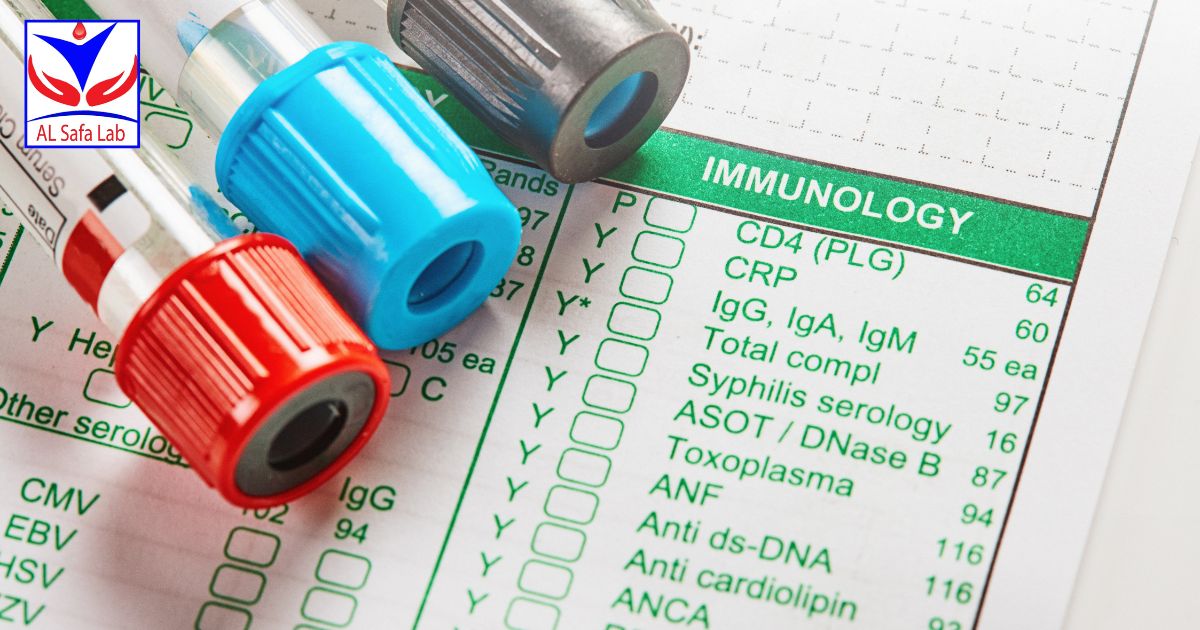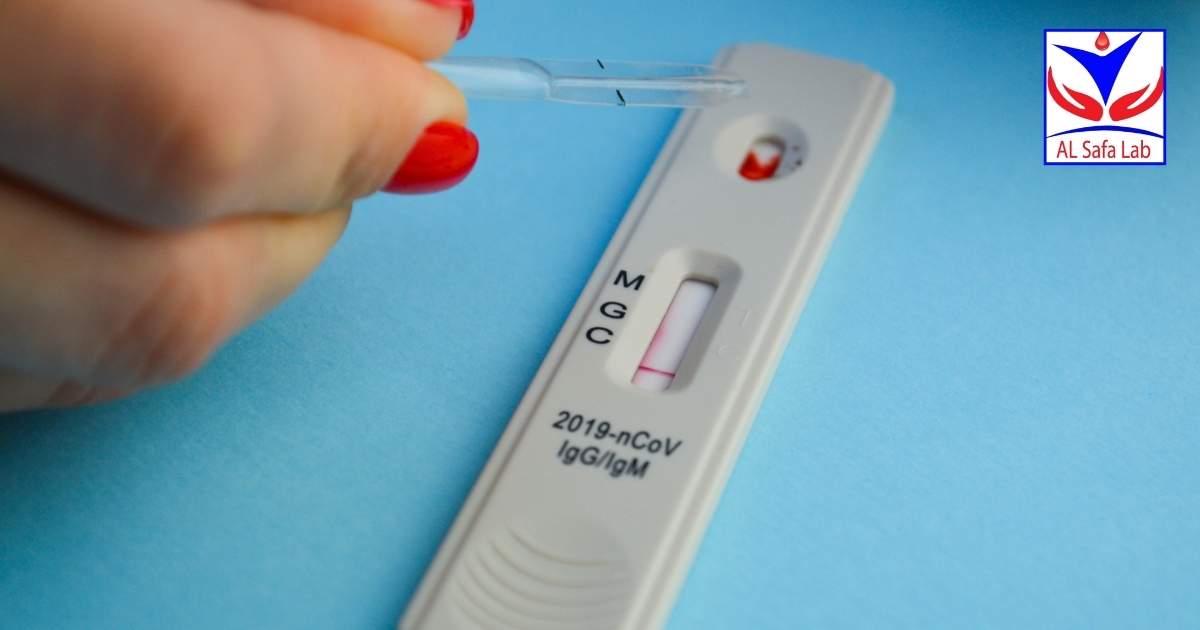The CRP test, also called the CRP blood test, is a common medical examination used to measure the level of C-reactive protein in the blood. This protein is produced by the liver and rises when there is inflammation or infection in the body. Understanding what the CRP test means is important, as elevated levels may indicate acute infections, chronic inflammatory diseases, or even an increased risk of heart conditions. Doctors often rely on this test to assess the severity of inflammation and to monitor how well treatment is working. The CRP test normal range is usually less than 10 mg/L in healthy adults, though results can vary slightly depending on the laboratory and testing method. Values above this range typically require further medical evaluation to identify the underlying cause.
crp test normal range
The CRP test normal range is generally less than 10 mg/L in healthy adults.
- Below 10 mg/L → considered normal, showing no significant inflammation.
- 10–100 mg/L → may indicate mild to moderate inflammation, infection, or tissue injury.
- Above 100 mg/L → often suggests severe bacterial infection or major inflammation.
It’s important to note that the exact reference range may vary slightly depending on the laboratory and the testing method.
CRP Test and Its Link to Diseases
The CRP test is closely linked to many health conditions because it reflects the level of inflammation in the body. High CRP levels are often seen in infectious diseases such as bacterial or viral infections. In cardiovascular diseases, a persistently elevated CRP may signal a higher risk of heart attack or coronary artery disease. The test is also useful in monitoring chronic inflammatory disorders like rheumatoid arthritis and lupus. In some cases, increased CRP levels may accompany certain types of cancer or digestive diseases such as Crohn’s disease and ulcerative colitis. While the CRP blood test cannot identify the exact cause of illness, it plays a vital role in detecting inflammation and guiding doctors toward further diagnostic tests.
Book your test now via WhatsApp


What is the CRP Test and Coronavirus?
In modern medicine, laboratory tests have become essential tools for accurately understanding the body’s condition. Among these, the CRP test stands out as a valuable tool for detecting inflammation levels. Below are the key points related to this test:
- Definition: The CRP test measures the level of C-reactive protein in the blood, which rises in cases of inflammation or acute infection.
- Importance: It helps doctors evaluate the severity of inflammation and distinguish between mild infections and those requiring urgent medical care.
- Relation to coronavirus: The CRP test and coronavirus are closely linked, as the test is used to measure the body’s response to the virus and track the progression of the patient’s condition.
- Normal range: Patients often ask about the CRP test and coronavirus normal values, which are usually below 10 mg/L. Any elevation above this requires close monitoring.
- Wide applications: The CRP test is not limited to coronavirus; it is also used in monitoring heart diseases, rheumatism, and several chronic inflammatory conditions.
This makes the CRP test a vital diagnostic tool for early detection and disease monitoring. With your concern for accurate and quick results, Al Safa Laboratory provides trusted services that guarantee peace of mind and the quality care you deserve.


CRP Test and Coronavirus – The Link
Since the outbreak of the coronavirus, certain medical tests have gained significant importance in monitoring patients’ conditions. Among them, the CRP test has become directly associated with assessing inflammation severity. Here’s how:
- Indicator of inflammation severity: A high CRP level reflects a strong immune response to the virus, helping doctors determine the seriousness of the case.
- Differentiating cases: The test helps distinguish patients with mild symptoms from those at risk of developing severe complications.
- Monitoring treatment response: By tracking CRP levels, doctors can evaluate the effectiveness of medications and treatment plans.
- Predicting complications: Persistently high CRP levels may indicate potential severe pneumonia or respiratory issues linked to coronavirus.
- Part of a comprehensive evaluation: The test is not used alone but combined with other examinations to build a complete picture of the patient’s health.
Thus, the CRP test and coronavirus are strongly connected, helping physicians manage cases quickly and effectively. For reliable and fast testing, Al Safa Laboratory offers advanced devices and medical expertise to provide accurate results and reassurance.
The Best Medical Laboratory in Egypt: Al Safa Lab – Your Trusted Destination for Accuracy and Care


The Role of CRP Test in Coronavirus Cases
The CRP test played a central role during the coronavirus pandemic, aiding doctors in evaluating inflammation severity and monitoring treatment response. Its main roles include:
- Assessing infection severity: Elevated CRP levels indicate strong inflammation, an important marker in COVID-19 patients.
- Predicting complications: Helps forecast the risk of pneumonia or acute respiratory distress syndrome (ARDS).
- Tracking treatment success: Declining CRP levels suggest positive response to therapy.
- Distinguishing mild from severe cases: Helps doctors decide whether a patient needs routine monitoring or intensive care.
- Complementary testing: Often combined with chest X-rays and other blood tests for comprehensive assessment.
This shows the strong connection between the CRP test and coronavirus in managing the disease. With precise results and specialized monitoring, Al Safa Laboratory puts your health first, ensuring accuracy and quality in every test.
You may also like: What Diseases Can a Complete Blood Count Detect?
Factors Affecting the CRP Test and Coronavirus Results
Although the CRP test and coronavirus are crucial for understanding immune response, several factors may affect results and require expert interpretation:
- Severity of infection: The more severe the coronavirus infection and inflammation, the higher the CRP levels.
- Chronic conditions: Diseases such as heart disease, diabetes, or liver problems can elevate CRP even without infection.
- Age and gender: Reference ranges may differ across age groups and between men and women.
- Medications: Anti-inflammatory drugs can lower CRP levels, potentially masking true inflammation.
- Individual variations: Immune response differs from person to person, leading to varied CRP patterns.
Therefore, interpreting CRP test and coronavirus normal values requires combining lab results with symptoms and other medical investigations. With advanced technologies and expert staff, Al Safa Laboratory ensures accurate, reliable results that support your health monitoring.
The Best Laboratory for CRP Test
You can now contact Al Safa Laboratory to perform the CRP test and receive your results quickly with guaranteed accuracy. Home sample collection services are also available to ensure patient comfort and convenience.
Book your visit now


Conclusion
In conclusion, this article highlighted the importance of the CRP test, its role in coronavirus-related cases, and its ability to differentiate between levels of inflammation. Early and accurate testing supports timely medical decisions. For those prioritizing their health, choosing Al Safa Laboratory remains the best option for fast, accurate, and reliable results that bring peace of mind.
Frequently Asked Questions about CRP Test
It is a blood test that measures the level of C-reactive protein, which increases during inflammation or infection.
- Does the CRP test confirm coronavirus infection?
No, it does not directly diagnose coronavirus, but it shows the degree of inflammation associated with the infection. - Does a high CRP level mean a severe case?
It may indicate strong inflammation, but results should always be interpreted alongside symptoms and other tests. - Is fasting required before the CRP test?
No, the test can be done at any time without fasting. - Can the CRP test help track recovery?
Yes, it helps monitor the body’s response to treatment and the decline of inflammation.
In summary, the CRP test and coronavirus remain essential supportive tests for tracking the disease’s progression. With the advanced services of Al Safa Laboratory, you are guaranteed accuracy, reliability, and complete peace of mind for your health journey.
